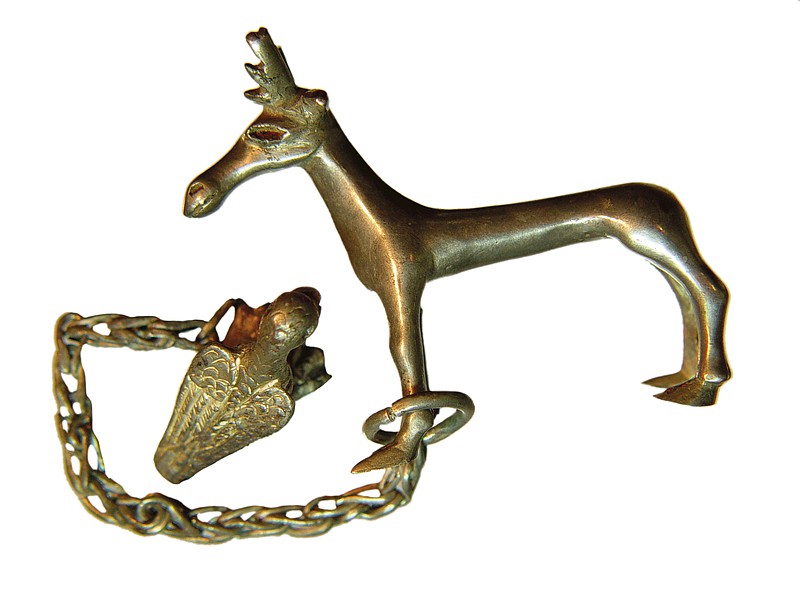AMSTERDAM (AP) - A trove of historical artefacts being held by an Amsterdam museum must be returned to Ukraine and not to four museums in Crimea that loaned them out for a 2014 exhibition, a Dutch court ruled Wednesday.
The decision goes a long way to resolving a cultural tug-of-war triggered by Russia's annexation of Crimea.
While the Amsterdam court's decision was a clear victory for Ukraine, the court said that the treasures should remain in storage in Amsterdam pending the outcome of a possible appeal.
Russia's 2014 annexation of Crimea left the treasures in a legal limbo as both the Crimean museums and Ukraine demanded their return by Amsterdam's Allard Pierson Museum, which had borrowed them for a 2014 exhibition that opened a month before the annexation.
In a statement, the court said that the claim that the artefacts are "part of the cultural heritage of Crimea or of the Autonomous Republic of Crimea was incorrect, as neither is a sovereign state."
Authorities in Crimea quickly condemned the ruling.
"This is yet another politicized, wrong decision which contradicts the laws," Russian news agency Tass quoted Crimean Culture Minister Arina Novoselskaya as saying. "Crimea will appeal to defend its claim to get the collection back to Crimea."
The court didn't rule on the actual ownership of the approximately 300 artefacts, saying that the issue must be resolved by a Ukrainian court.
Valentina Mordvintseva, the Crimean curator of the exhibition, said the ruling would drive a wedge between Crimea and Ukraine. She said it would make residents in Crimea feel "even more united, but divided from Ukraine. Such things, they bring cultural break."
Ukraine's deputy culture minister, Svetlana Fomenko, welcomed the decision, saying it supported efforts by her country to protect its national treasures.
"Crimea is occupied by the Russian Federation and we have no access to Crimea," she said. "We cannot protect our cultural heritage in Crimea."
___
Nataliya Vasilyeva contributed to this report from Moscow.
